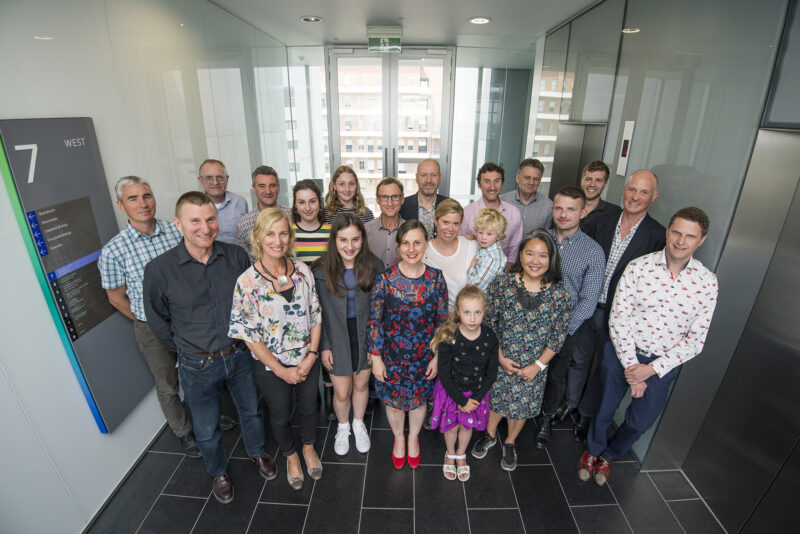Professor Pellegrini states:
“Philanthropy was absolutely critical to us being able to progress this work”.
Benalla GP Dr Gerard Brownstein, who administers the Drakensburg Trust with siblings David and Elizabeth, was shocked to learn of the prevalence of HTLV-1 in Indigenous communities.
“You don’t often think of lab work as necessarily being something that is about social justice but that’s what it is at its heart”.
Gerard’s father Eddie Brownstein, a renowned Horsham surgeon, established the Drakensberg Trust in 1978 from inherited money and donated to social justice causes and medical research, including WEHI. Before his death in 2014, he had a decades-long personal relationship with WEHI, during which time he sat on WEHI’s Human Research Ethics Board. Gerard Brownstein states:
“WEHI has been very welcoming to us, too. Meeting up with the infectious disease team over morning tea has become a family occasion we all look forward to. These updates are always inspiring.”



